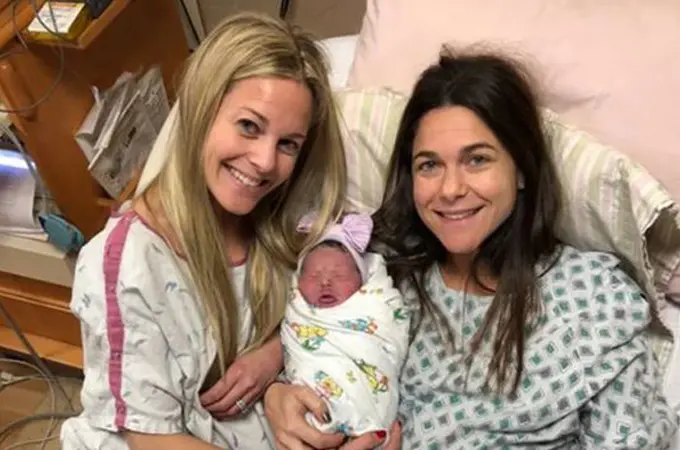News that supermodel Tyra Banks and her boyfriend welcomed a baby boy into the world a few weeks ago sparked conversation and questions about what is a gestational carrier. Health.com reached out to reproductive endocrinologist Naveed Kahn, M.D. from Shady Grove Fertility’s Leesburg, VA, office in the article, “7 Facts about Having a Baby with a Gestational Surrogate.”

What is a gestational carrier?
A gestational carrier (GC) is a woman who carry’s someone else’s child to term. Many times the gestational carrier is described incorrectly as the gestational surrogate. Dr. Kahn points out that a gestational carrier is not a traditional “surrogate,” as a surrogate is someone who donates her egg and then subsequently carries the child. But this arrangement isn’t very common anymore, says Dr. Khan. “Most parents want their child to have their genes, so they use a gestational carrier,” Kahn adds.
A gestational carrier allows a couple to use their own genetics to conceive and is necessary for a couple when the woman is unable to carry her child to term for medical reasons. “When word gets out there, people start thinking ‘oh I should do it,’ because they don’t want stretch marks or they’re too busy. But those aren’t medical reasons,” explains Dr. Khan. There are a variety of medical conditions in which a woman may require a gestational carrier such as fibroids, severe endometriosis, cervical uterine cancer, and conditions that require a hysterectomy. If the mother has suffered recurring miscarriages and has not been successful with IVF, those are also reasons to look into using a gestational carrier.
Same-sex male couples will also work with a gestational carrier, egg donor, and most often one of the partner’s sperm to conceive.
At Shady Grove Fertility, in all autologous cases—where the intended mother plans to use her own eggs—the recipient couple will undergo screening via the standard infertility work-up, in addition to the requirements of the U.S. Food and Drug Administration (FDA). We will treat the female partner as a traditional IVF patient, with her cycle culminating in an egg retrieval. The GC will undergo IVF treatment with the couple’s embryo. Therefore, the gestational carrier does not have any genetic link to the baby and once the baby is born the parents will raise their child accordingly.
Who can be a gestational carrier?
Gestational carriers can be friends, family members, or found through an agency. At Shady Grove Fertility, a donor nurse will facilitate introductions for the intended parents and the agency and the treatment process will be clearly outlined for all parties. One crucial element is for prospective parents to consult an attorney who specializes in reproductive law to write a contract for the couple and the gestational carrier. Dr. Kahn told Health that since laws vary by state, with some states not even recognizing gestational carriers, legal protection is even more important.
At Shady Grove Fertility a special team works with all parties and requires necessary screening and legal certification prior to the start of a cycle. We believe that every patient deserves to build their family and applaud gestational carriers who help future parents in such a tremendous way.
If you’re interested in learning more about what is a gestational carrier, visit our website to learn how to get started, or to schedule an appointment and speak with one of our New Patient Liaisons call 1-877-971-7755 or click to schedule an appointment.





